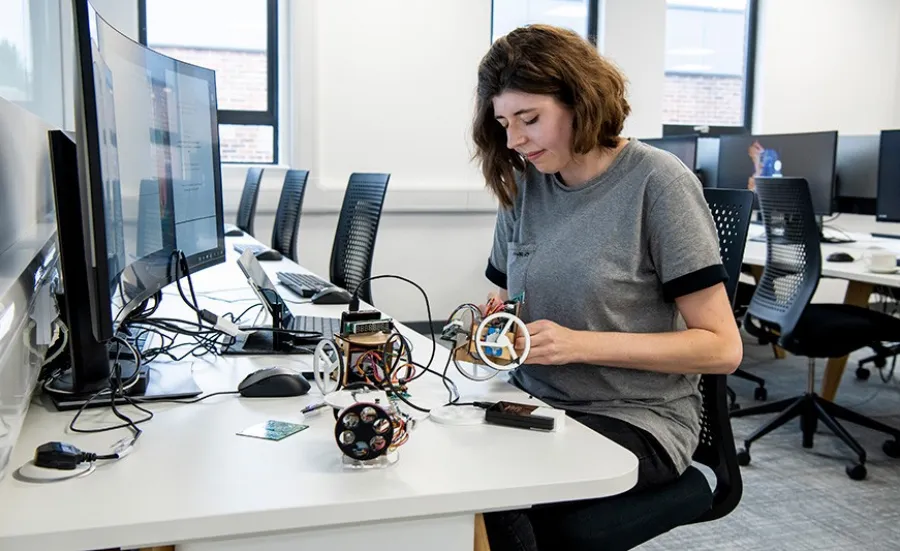Current research degree projects

Explore our current postgraduate research degree and PhD opportunities.

Explore our current postgraduate research degree and PhD opportunities.

Vehicles are becoming sensor-rich, collecting and sharing data about the drivers and passengers. This project aims to explore the drivers' and the passengers' awareness, expectations, and needs for in-vehicle data collection and sharing, identify the gap between their perceptions and vehicles' actual implementation, and develop more privacy-respectful systems.
This PhD focuses on developing deep-learning techniques based on multimodal natural language processing (NLP), including large language models (LLMs), audio processing, computer vision (pose estimation, emotion recognition), knowledge graphs or neurosymbolic models in computational social science, analysing discourse in text/audio/video format, including emotional rhetoric analysis, information extraction, and argument mining.
The project focuses on understanding cerebral blood flow and its physiological control, to improve diagnosis and treatment of brain injuries. The project will adopt a control and system identification approach, and will benefit from the use of real data, clinical collaborations, and links with the international research network CARNet.
This project will consider a complex set of plasma chemical reactions and physical processes taking place in wet, low pressure air discharges and the noise as well as an erosion associated with corona discharges in electric power equipment.
This PhD project aims to develop advanced soft robotic systems with integrated sensing, on-demand therapy, and AI-driven closed-loop control. This interdisciplinary research opportunity merges medical robotics, bioelectronics, and wearable technology for transformative healthcare applications. Ideal for innovators in biomedical engineering, robotics, or flexible electronics.
This project explores the intersection of Artificial Intelligence (AI) and Art, examining how machine learning can contribute to artistic creation and expand our understanding of what art is. Through developing generative models, physically embedded tools, and fostering human-AI collaborative artistic processes, this research addresses creativity, authorship, and originality.
To trust Deep Learning models in sensitive applications such as autonomous vehicles or healthcare, we need to better understand which information they rely on when making decisions. In this project we set out to create novel tools to solve this crucial step towards AI Safety.
This PhD project aims to develop optical metasurfaces with extreme light manipulation capabilities by employing deep learning-based design methodologies alongside advanced nanofabrication techniques pioneered by our teams at BOB体育登录网址_欧宝体育官网平台-APP|下载. These cutting-edge devices will be applied to intelligent sensing applications in complex environments, including those in biomedical fields and consumer electronics.
This project addresses malicious energy draining attacks (which significantly increase power consumption of deep learning algorithms) and contributes to energy-efficient artificial Intelligence (AI). You will have opportunities for collaboration in academia and industry, including Cambridge, Microsoft, Nvidia, ARM, and Google DeepMind.
Hypoxic-ischaemic encephalopathy (HIE) affects babies' brains during the childbirth due to shortages of oxygen. Using computer vision and machine learning techniques, HIE disease is diagnosed much earlier than two years which is the current normal practice in hospitals. As a result of HIE early detection, then early interventions can be applied to improve the babies health.